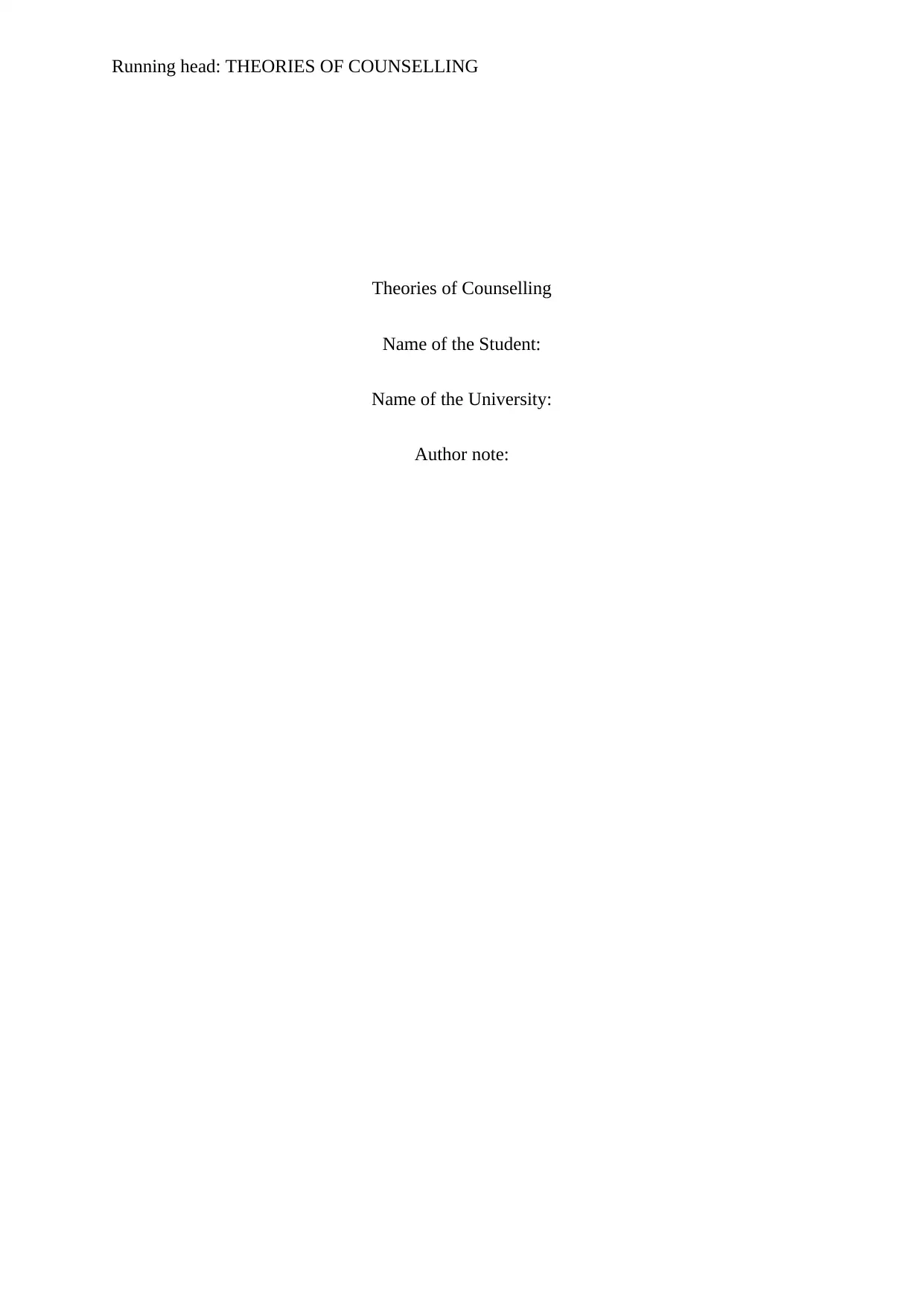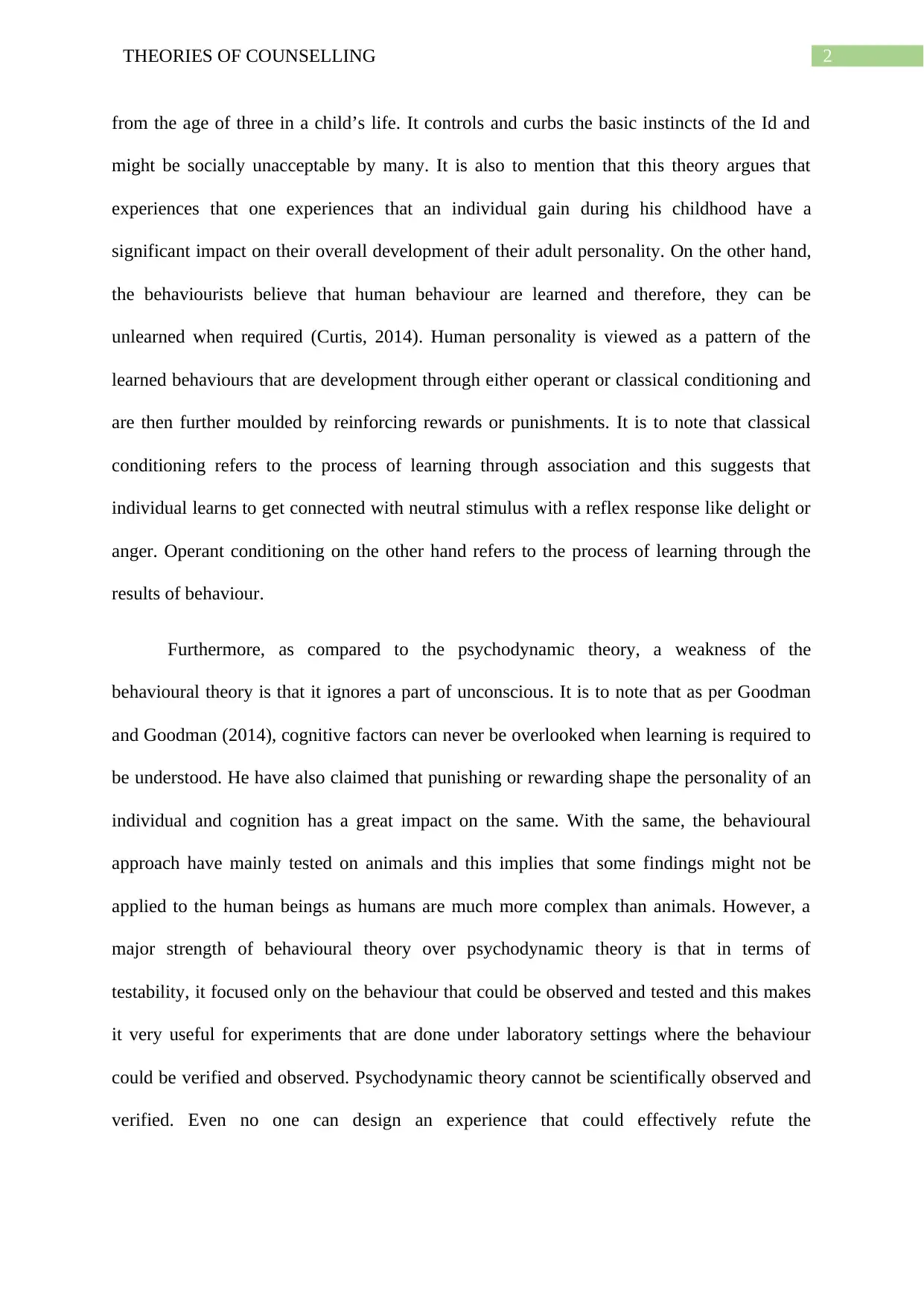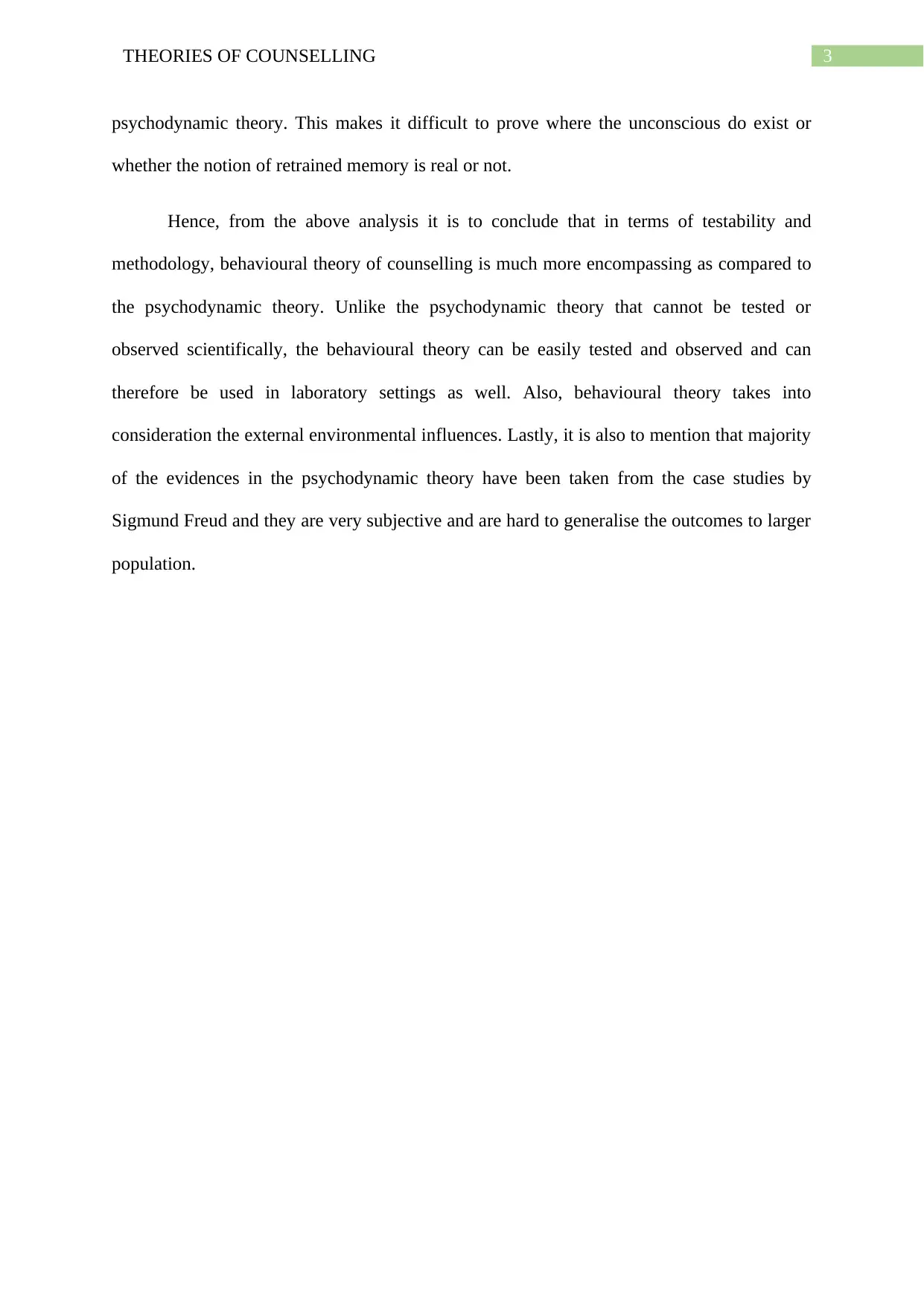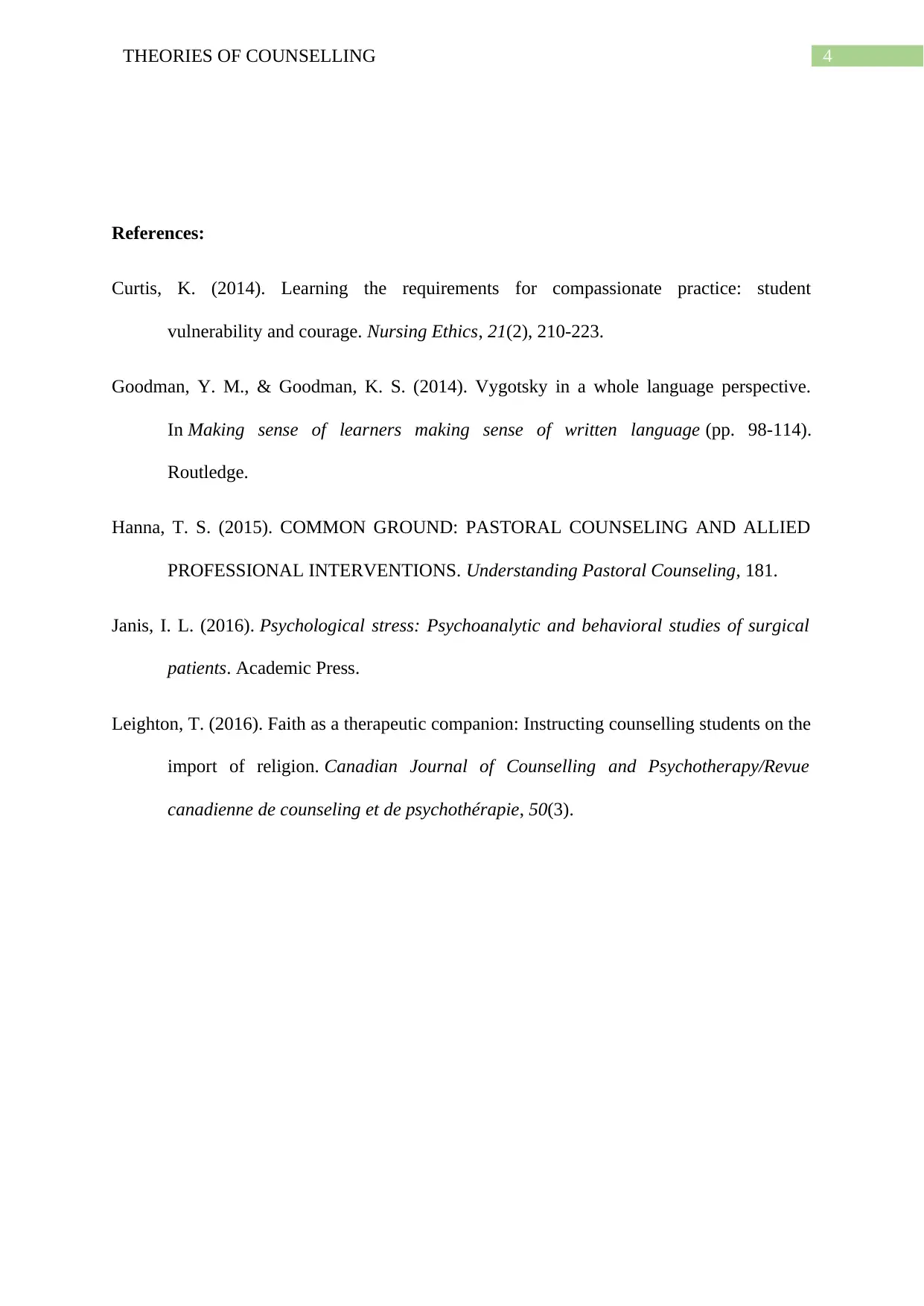An Analysis of Two Counselling Theories: Psychodynamic and Behavioural
VerifiedAdded on 2022/11/01
|5
|1088
|338
Essay
AI Summary
This essay provides a comparative analysis of two prominent counselling theories: psychodynamic and behavioral. The essay begins by introducing the core principles of each theory, highlighting the psychodynamic approach's focus on the unconscious mind and past experiences as determinants of behavior, and contrasting it with the behavioral theory's emphasis on environmental influences and learned behaviors. It then delves into the key concepts within each theory, such as the Id, Ego, and Superego in psychodynamic theory, and classical and operant conditioning in behavioral theory. The essay further discusses the strengths and weaknesses of each approach, including the testability of behavioral theory versus the challenges in scientifically observing and verifying psychodynamic concepts. The essay concludes by emphasizing the behavioral theory's greater testability and consideration of external environmental influences, while acknowledging the subjectivity and limitations of the case study-based evidence often used in psychodynamic theory. The essay uses multiple academic sources to support its analysis.
1 out of 5












![[object Object]](/_next/static/media/star-bottom.7253800d.svg)